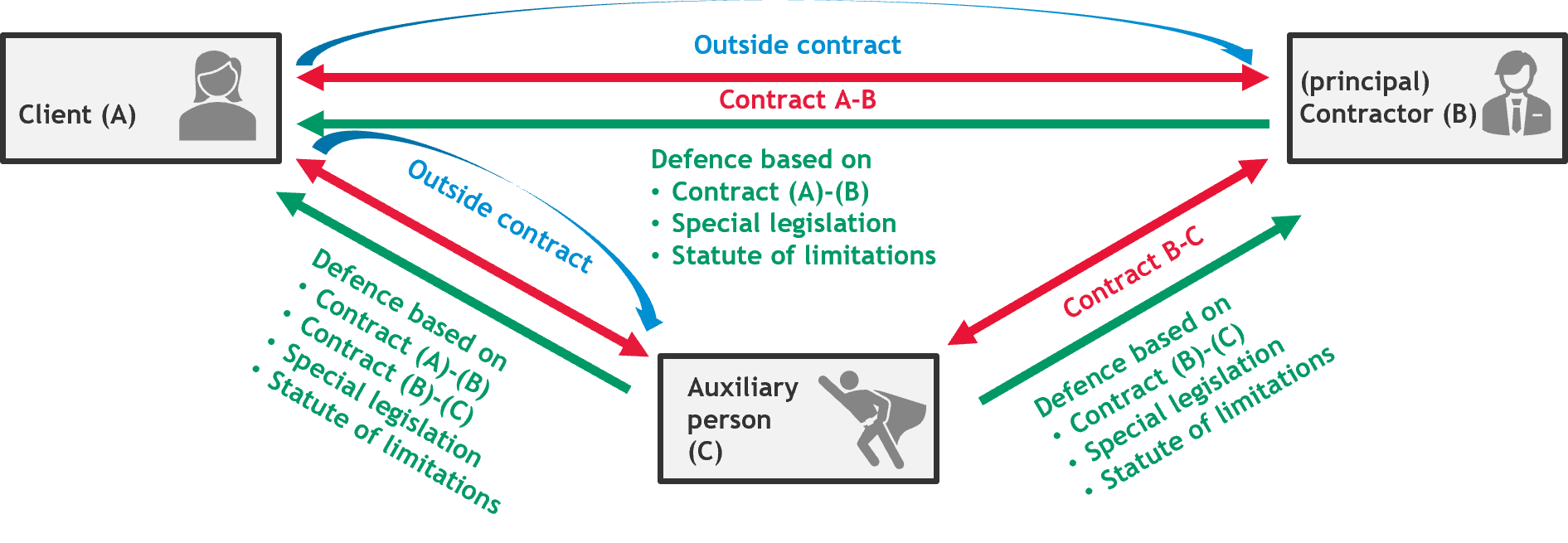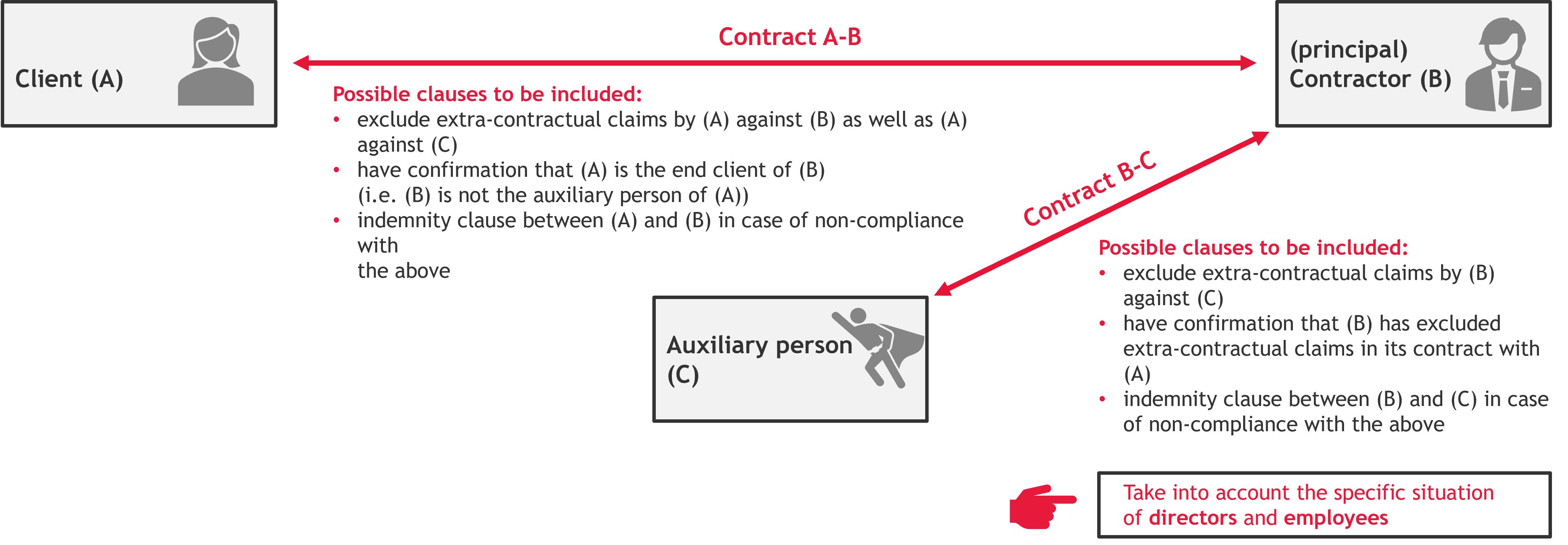New legislation will come into force on 1 January 2025 that will lead to increased liability for directors, employees, subcontractors, and independent service providers (CEOs, CFOs, managers, freelancers, etc.), among others.
1. Wherein lies the danger?
The new legislation broadens the possibilities of bringing so-called extra-contractual liability claims proceedings.
This impacts the following situations:
(i) the relationship between contracting parties
- Currently, in principle, the contracting parties can only file suit against each other on the basis of the contractual provisions if one of them is in breach of the contract. Contractors can almost never file suit against each other on ‘extra-contractual grounds’ (the ‘concurrence prohibition’).
- Starting in 2025, the contracting parties can choose whether to initiate proceedings against one another:
- EITHER on the basis of the contractual provisions;
- OR on grounds outside the contract (such as a breach of the general standard of care).
In this case, however, the contractor will be able to rely on the existing contractual provisions to defend itself.




